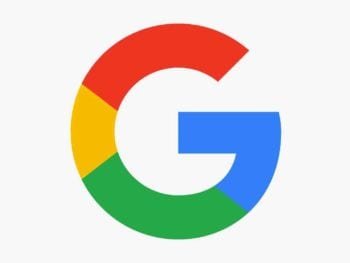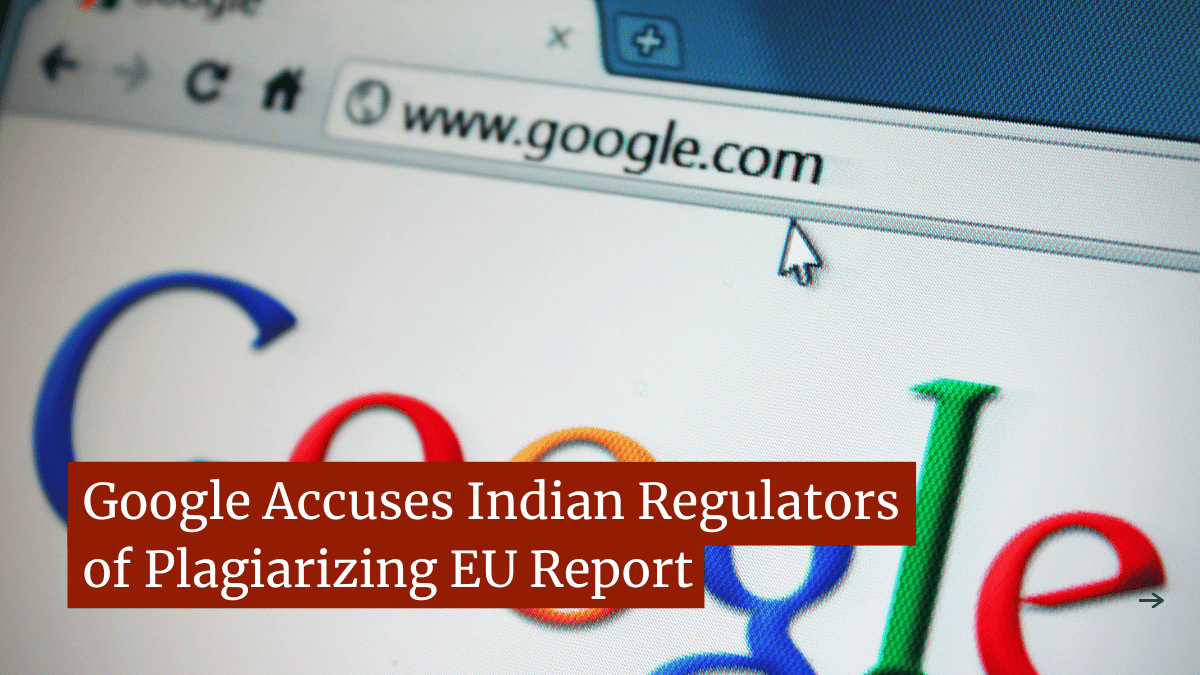Google Accuses Regulators of Plagiarism

Google, like many tech companies, is facing increased scrutiny from international regulators.
Back in 2018, that resulted in the European Commission handing down a 4.1-billion-euro ($4.3 billion) fine over allegations that the company abused its ownership of the Android mobile operating system to unlawfully push its other products.
According to the EU Commission, Google exploited its agreements with phone manufacturers to require them to promote various other Google products such as search and YouTube in exchange for access to Android for a low price.
That decision was recently upheld by the European Court of Justice, though the fine was slightly reduced.
However, the EU is not alone in handing down fines against Google. In October 2022, the Competition Commission of India (CCI) fined Google some 13.38 billion Indian rupees ($161 million) over the same issue. The CCI also ordered other remedies that were seen as “more sweeping” than the one’s in Europe.
Google is now appealing that decision and, as part of their defense, allege that the CCI plagiarized parts of the EU ruling, including using evidence that was not introduced into the Indian proceedings.
According to Google, there were at least 50 instances of copying, some of which were “word-for-word”.
Because of this, Google alleges that, “The Commission failed to conduct an impartial, balanced, and legally sound investigation.”
At this time, neither the CCI nor the European Commission has released any comment.
However, Google is far from the first to make this argument, as we saw something similar happen in the European Union in 2019.
Copy and Paste Roundup
In 2015, the German Federal Institute for Risk Assessment (BfR) released a re-evaluation report on the safety of glyphosate, more commonly known as the weed killer Roundup.
The report was supposed to examine all available research on the safety of the chemical and reach an independent conclusion, which the BfR claimed they had done.
In 2017, partially based upon that report, the European Union voted to renew the license for glyphosate.
However, shortly after that vote, many began to question the BfR report, alleging that it failed to be independent and pulled heavily from industry research.
In 2019, the issue came to a head as a report was released alleging that over half of the BfR report were copied and pasted from content produced by the Glyphosate Task Force, a coalition of pesticide companies that had submitted the application.
The scandal ended up not producing significant change when it came to glyphosate in the EU. Though the controversy is ongoing, the license was recently extended to the end of this year pending the publication of additional conclusions.
The Issue of Impartiality
What both of these cases have in common is the issue of impartiality.
Both the CCI and the BfR are supposed to be independent and impartial organizations. However, it’s difficult to make that claim of impartiality when your reports copy and paste heavily from outside sources without attribution.
Furthermore, as I noted in my previous piece about the glyphosate, attribution is information. Not attributing is withholding information, something that’s generally frowned upon with such important reports.
To be clear, with both cases the norms in the space are up for debate. According to the BfR, they didn’t do anything that was outside industry standards. But even if those are the norms, they aren’t norms that help generate trust in the findings.
However, the CCI case has the added wrinkle of using evidence that was not part of the Indian case. It is unclear what, if any, impact that will have on the judgment of the appeals court, but it is difficult to argue that Google had the chance to fully respond to the allegations if evidence the decision was based upon wasn’t even presented.
As difficult as it is to defend Google at times, this copying and pasting paints the picture of a regulatory organization that was eager to repeat the success of the EU regulators and was willing to take shortcuts to do so.
While the courts will decide if their actions warrant tossing the decision, it does not instill a great deal of confidence in the process.
Bottom Line
Reports such as these have significant legal implications. They fine companies for bad actions, ban or allow products, and much more. These implications are obviously very important to those directly involved, but they also matter to the public.
That public needs to know that their government agencies are completing the work they are tasked with, providing independent oversight of their designated industries and activities.
Unattributed use of outside content does not help that image. At best, it makes the work look shoddy and sloppy, at worst it makes it hopelessly biased.
Regardless of the outcome of the CCI case, it will be easy to justify doubt in the findings of the regulators. That is something that could have been easily avoided with more care and more work.
Unfortunately, that is not something that can be repaired in this case and can only serve as a reminder in future matters.
Want to Reuse or Republish this Content?
If you want to feature this article in your site, classroom or elsewhere, just let us know! We usually grant permission within 24 hours.
